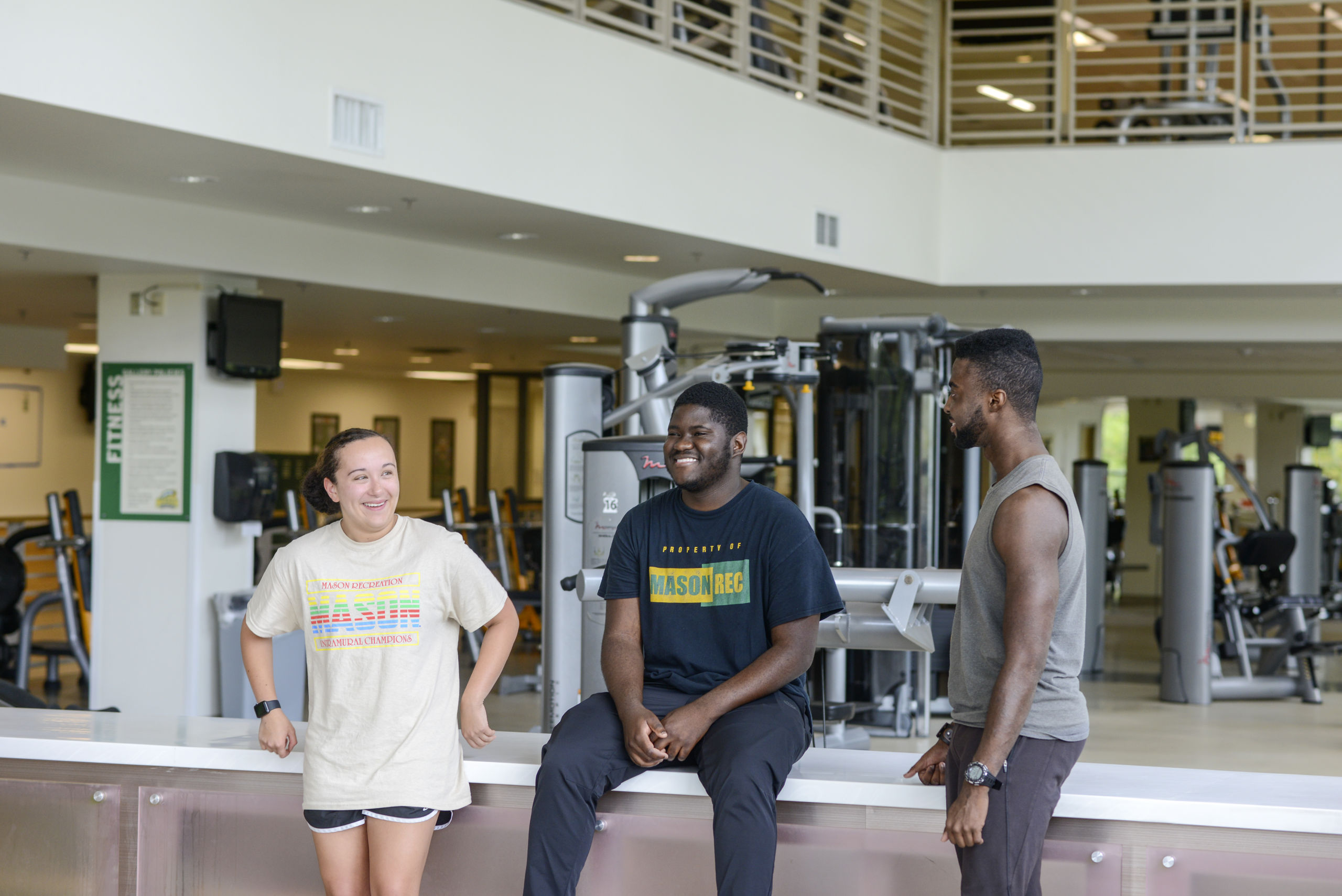By: Jana Alchoubassi, a Mason student majoring in Communication
“Success isn’t always about greatness. It’s about consistency. Consistent hard work gains success. Greatness will come.” – Dwayne “The Rock” Johnson
Physical exercise is an opportunity, not an obligation. Exercise isn’t a chore that you have to do; it’s a positive choice you can make for your health. Changing how you think about exercise can motivate you to take good care of your fitness, which will strengthen your overall well-being.
Consider this scenario: If you are supposed to be at work on Friday – let’s say at 8 a.m. – you are going to be there. When your boss assigns you a task, you will complete that task. But when you tell yourself you are going to start an exercise workout routine on Friday, you don’t. Why? That shows a lack of respect for yourself, so you must get to the root of that. You have to show up for yourself. Once you actually put foot on the gas and go by starting to exercise, you will know you are taking care of yourself. It’s time to put your needs first – to focus on your well-being.
According to the American Psychological Association, only 17 percent of adults report exercising daily. Of those who exercise, 53 percent of adults say they feel good about themselves after exercising, 35 percent say it puts them in a good mood, and 30 percent say they feel less stressed as a result.
We all know that exercise can benefit our bodies, but many of us do not know the benefits to our minds. Often, people who exercise daily report that they do it because it makes them feel good. Exercise can boost your mood, concentration, and alertness, according to an article by the New York Post. It can even help give you a positive outlook on life.
You may ask, “How will I have time to work out every day?” As a student, this question frequently crosses my mind. We are busy, and most of us are not just studying but also working and juggling a myriad of responsibilities outside of school. But exercise does not have to be strenuous or take a long time. According to the Better Health Channel, studies show that low or moderate-intensity exercise is enough to make a positive impact on mood and thinking patterns.
A good night’s sleep is necessary for active and successful students. Maintaining high energy levels, developing coping abilities, sustaining self-esteem, and increasing levels of good hormones are all crucial to performance – both in college and beyond. You can achieve these traits with a minor and straightforward change of habit, making exercise part of your daily routine, according to Better Health.
Feeling in control is a well-earned habit that every student should have, and your well-being is one of those things you get to choose to nourish. Having the ability to move your body should feel like an absolute honor because doing it for yourself will ultimately elevate your lifestyle, and you will never regret it.
There is a popular saying that states, “Where focus goes, energy flows.” Achieving any goal requires focus, effort, and consistency. So, show up to exercise with purpose and positive intentions. Shut out the noise and focus on making yourself better than yesterday. The body is the machine, and the mind is the engine, so make sure you use them wisely.
Every day we have the option to evolve or repeat. We can’t expect to see different results from repeating the same actions. Let your actions match your intentions and focus on what you can do rather than on what you can’t do. If you genuinely want something, put in the work daily to achieve it. Believe in yourself and make it happen.
Start your exercising journey today to start enjoying a healthier body and mind!
Additional Resources
- Explore the many in-person exercise options available through Mason Recreation.
- Explore the many online exercise classes available through Mason BurnAlong.
- Be part of the Mason Nation Thriving Together 5K.
Write one of these Thriving Together Series features! We’re looking for contributions on all topics related to well-being. Read other Thriving Together Series articles here and contact us at [email protected] for guidelines. Thank you for helping our Mason community thrive together online!






















